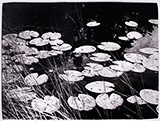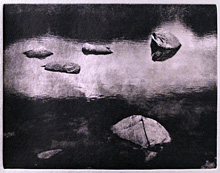Lord Darlington, an amiable aristocrat of impeccable honour and goodwill, convenes secret meetings at his palatial estate, Darlington Hall. The task of his butler and the narrator of this novel, Stevens, is to see that the elaborate preparations and support services are rendered smoothly and so discreetly as to be hardly noticeable. Lord Darlington’s mission in life is to use his wealth and connections to deliver peace to Europe during the 1920s and 1930s. He feels sorry that Germany was treated so poorly at Versailles, and wishes to make amends, trusting that German leaders will return his generous goodwill in kind. Cluelessly and tragically, the noble goodwill of Lord Darlington — a fictional character who represents a type prevalent in England then — is exploited by Hitler to neutralize England before attacking it. Unable to imagine that not all statesmen are gentlemen, the hapless Lord Darlington unwittingly becomes a mortal danger to the country he loves and reveres.
The amateur diplomacy at Darlington Hall is only a subplot of the story, which takes place as a series of increasingly melancholy reminiscences by Stevens. The tragic denouement of his employer’s noble efforts has Stevens wondering whether his own service as butler was of any value at all. This is especially disturbing because of the scrupulous attention paid earlier in the story to the high professional standards he aspired to. Ishiguro invents an entire society of English butlers who meet regularly to discuss the niceties of their profession, compare notes on who is at the top of his form and who is not, and publish guides on what constitutes professional butlering. Such is Ishiguro’s genius that the absurdity of such preoccupations is subdued and subsumed in Stevens’ reminiscences.
Stevens’ dedication to his profession is so thorough that his fervently anticipated reunion with his colleague in past service, Miss Kenton, is cast entirely in terms of shoring up the staff at Darlington Hall. Their mutually unrequited relationship is one of the most tragic love stories in literature, brilliantly enacted by Anthony Hopkins and Emma Thompson in the film. By way of apology for an attempt on his professionally imperturbable demeanour, she says ‘Mr Stevens, you musn’t take anything I said earlier to heart. I was simply being foolish.’ ‘I have not taken anything you have said to heart, Miss Kenton‘, he responds, completely unaware of how smitten she is with him. So it goes, right through to the remains of the day at one of those sad seaside resorts that dot the southwest English coast. There, a chance acquaintance advises Stevens ‘you’ve got to keep looking forward; the evening’s the best part of the day‘. So he resolves to practice ‘bantering’, jocular conversation more in keeping with the style of his new employer, an American who acquired Darlington Hall after the war.
For some thirty years after the war, philosophers, historians, and ordinary people pondered how in the world the English aristocracy and many highly educated people could have got it so wrong about Hitler. After all, he didn’t conceal his plans, and his murderous activities were perfectly consistent with them. The leading lights of English society somehow contrived to convince themselves that what they were seeing was not what they were seeing. ‘The Remains of the Day’ is, among many other things, a story of self-deception — Lord Darlington’s blindness to the consequences of his noble goodwill, Mr Stevens’ inexpressible love for Miss Kenton. Their quandry is revealed by half-overheard conversations, interrupted reflections, chance recollections of seemingly insignificant incidents vividly lodged in memory, small gestures, and momentary losses of equanimity.
The novel reminds us we are all mysteries to ourselves. Even as we present seemingly convincing rationales for our behavior to the world at large, we are really no better able to explain our own motivations than those of our families and best friends; and even less can we explain the motivations of complete strangers. Perhaps universal misunderstanding is our fate. We can, however, obtain partial, temporary, contingent knowledge, which is usually enough to get us through the day. In most situations, incomplete knowledge is all we have, whether we admit it or not, and it’s on that faulty basis that we must act. Art is no better than science at forecasting the future, but through art we perceive there are things we cannot perceive — hints, intimations, feelings, the very qualities scrupulously removed from Stevens’ extremely well-disciplined professional practice.
On rare occasions something inexplicable washes over him, as when Miss Kenton leans in close to pry away the book he has been reading in his precious time alone. She is surprised to find it’s a sentimental romance, but Stevens hastens to explain he’s reading it for professional reasons, so that he can follow the conversation of the younger guests at Darlington Hall. Later, when given leave by his employer to explore the country west of Oxfordshire, he chances upon a view of the rolling hills near Salisbury that sends him into a most uncharacteristic reverie:
‘It was a fine feeling indeed to be standing up there like that, with the sound of summer all around one and a light breeze on one’s face. And I believe it was then, looking on that view, that I began for the first time to adopt a frame of mind appropriate for the journey before me. For it was then that I felt the first healthy flush of anticipation for the many interesting experiences I know these days ahead hold in store for me.‘
In his room at an inn, Stevens recalls the view, which inspires in him a soliloquy on the splendours of the English landscape:
‘I find what really remains with me from this first day’s travel… is that marvelous view encountered this morning of the rolling English countryside. Now I am quite prepared to believe that other countries can offer more obviously spectacular scenery. Indeed, I have seen in encyclopedias and the National Geographic Magazine breathtaking photographs of sights from various corners of the globe; magnificent canyons and waterfalls, raggedly beautiful mountains. It has never, of course, been my privilege to have seen such things at first hand, but I will nevertheless hazard this with some confidence: the English landscape at its finest — such as I saw it this morning — possesses a quality that the landscapes of other natioins, however more superficially dramatic, inevitably fail to possess. It is, I believe, a quality that will mark out the English landscape to any objective observer as the most deeply satisfying in the world, and this quality is probably best summed upby the term ‘greatness’. For it is true, when I stood on that high ledge this morning and viewed the land before me, I distinctly felt that rare, yet unmistakable feeling — the feeling that one is in the presence of greatness. We call this land of ours Great Britain, and there may those who believe this a somewhat immodest practice. Yet I would venture that the landscape of our country alone would justify the use of this lofty adjective.
Meditating on this, he asks ‘And yet what precisely is this ‘greatness’? Just where, or in what, does it lie? I am quite aware it would take a far wiser head than mine to answer such a question, but if I were forced to hazard a guess, I would say that it is the very *lack* of obvious drama or spectacle that sets the beauty of our land apart. What is pertinent is the calmness of that beauty, its sense of restraint. It is as though the land knows of its own beauty, of its own greatness, and feels no need to shout it. In comparison, the sorts of sights offered in such places as Africa and America, though undoubtedly very exciting, would, I am sure, strike the objective viewer as inferior on account of their unseemly demonstrativeness.‘
These momentary exhilirations hint at a world beyond that of ordinary perception. Through Stevens’ observations, Ishiguro leads us from the confusion of unexpected human intimacy, to the joyous wonders of nature, to reflections on unconscious beauty. Stevens himself, though but dimly aware of the limitations of his own perspective, recognizes in these moments there is more to life than butlering. Absurdly, he strives to remedy these deficiencies by diligent study, rather than by direct experience.
The philosopher Roger Scruton relates these momentary epiphanies to Kant’s notion of the transcendental, his attempt to see what if anything lies beyond our perception.
‘He said we can transcend our point of view insofar as we can see just how limited it is. But we can’t get beyond those limits. Yet, as he also said, we have intimations of things beyond the limits, intimations of the transcendental in the moral life. For example we know with absolute certainty of necessity that we are free, we know that by the laws of reason that we must treat each other in such a way as to obey a law that all of us could accept. This is a categorical imperative which binds us regardless of any empirical circumstances. That is something we know, a priori. We don’t know how it is that we know it but it brings with it an intimation of a world beyond the one on which the eyes are opened. Likewise in aesthetic experience, the experience of art and the beauty of nature especially, we seem to be granted intimations of a world beyond, of a transcendental realm about which we can’t actually speak, but nevertheless of which we can have a certain kind of knowledge.‘
So, at the end of the day, it is these hints, intimations, daydreams that we must explore to discover the truth of our lives. We explore them through novels like Ishiguro’s The Remains of the Day, graphic artworks, music, all of which can serve as transcendental media outlining the scope of what remains.

Constable, Hampstead Heath


